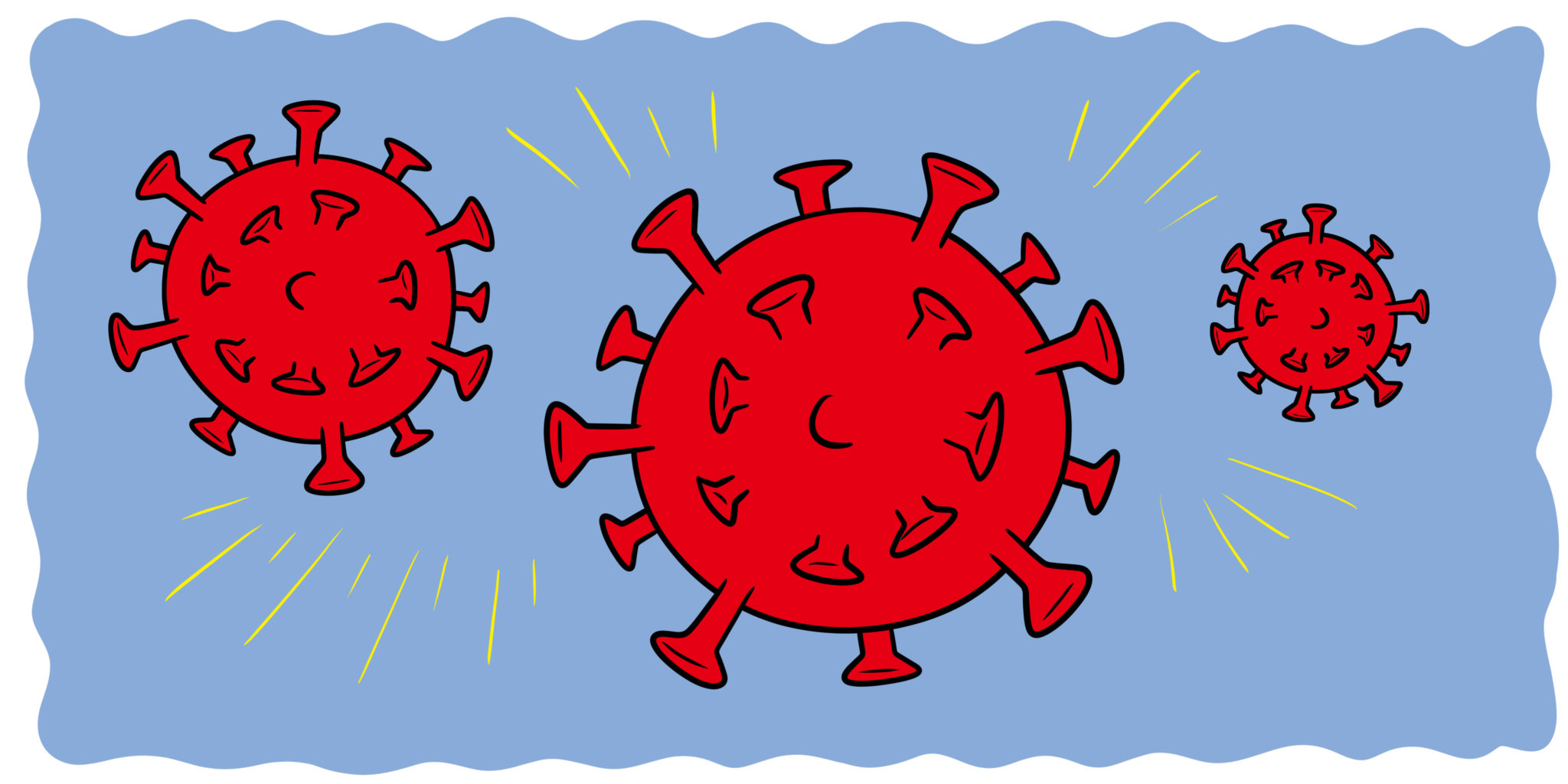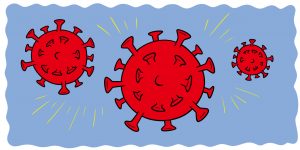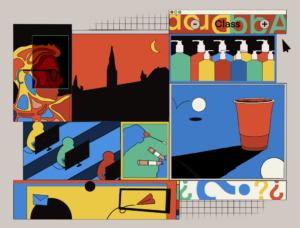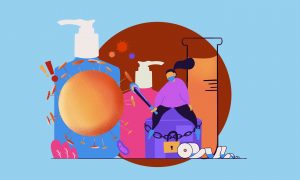This piece appears as part of our On The Pandemic column, featuring commentary about the COVID-19 pandemic from a diverse set of voices.
If social media wasn’t already the primary mode of communication with the rest of the world, living through COVID-19 has made it so. Students everywhere have found new ways to remain entertained on social media: reposted drawings of produce, excessively specific bingo charts, quirky 24-hour throwbacks, and pushup challenges have polluted my Instagram feed for the past three weeks.
One trend that particularly stood out to me was the “female empowerment” challenge where girls post a picture of themselves and then tag ten “beautiful friends” to do the same. Each post included a disclaimer, warning girls who weren’t nominated to refrain from getting angry because “that’s not the point.”
While the challenge was created with good intentions—to uplift girls’ self esteem and create a sense of community and support—its underlying exclusivity made it less about empowering women and more about replenishing the lack of social media content due to shelter-in-place orders. Even more importantly, the challenge is ironic and insensitive by its failure to address the ways women are disproportionately affected by this pandemic and the ways their fundamental rights are under threat.
Both state and federal governments have exploited the need for stricter social distancing protocols to push their political agendas. Conservative states such as Texas, Indiana, and Iowa have made attempts to ban non-life-threatening abortions by placing them under the category of non-essential, elective medical procedures. This push follows years of anti-abortion endeavors by governors—for example, the attempt by Alabama in May 2019 to ban abortions even in the case of rape or incest—which now have a window to slip through amongst the chaos of COVID-19.
Banning abortions does nothing to prevent the spread of COVID-19. The American College of Obstetricians and Gynecologists has stated “there is no evidence that prohibiting abortions during the pandemic will mitigate PPE shortages or promote public health and safety.” The most common form of early abortion is the pill and requires no medical gear. On the other hand, pregnancy requires medical resources as well as more interaction between doctors and patients. This decision by red states is not a necessary precaution to limit the spread of COVID-19, but rather an attack on the fundamental rights of women.
Access to abortions isn’t the only way that women are being disproportionately affected by efforts to combat COVID-19. The front line of the virus is predominantly female with one out of every five employed women working in the health-care/social assistance industries. Because of the wage gap and the fact that more women work part-time as compared to men, the majority of COVID-19-related job losses have been women and women will overall be more economically impacted by shelter-in-place orders.
Women tend to be the ones to pick up the extra housework and homeschooling even if they are still working; single mothers must now bear even more of the load than before. Moreover, due to shelter-in-place orders, cities nationwide are reporting a rise in domestic violence and sexual assault. Between February and March, cities such as Los Angeles, Chicago, and Boston have all seen rises in domestic abuse of up to 22 percent due to the increased financial stress, isolation, and increased alcohol consumption that accompanied shelter-in-place orders.
The use of social media as a distraction from the chaos seems unproblematic at first. Social media can be an outlet to express oneself and stay connected to people while stuck in our homes. However, we need to be more aware of the inherent privilege we have by being able to “find the bright side of being quarantined.”
While we’ve all been impacted by the COVID-19 outbreak, being able to participate in the challenge, which ultimately doesn’t support women in an effective or clear way, is extremely insensitive and entitled. The disparity between the facile attempts at female empowerment on Instagram and the ways women’s rights are under threat demonstrates how misdirected good intentions can actually be more harmful than empowering.
Girls who have the luxury of posting pictures of themselves and choosing their ten prettiest or most active friends on social media but overlook the ways women are being impacted by COVID-10 are, whether intentionally or not, hurting the feminist movement.
What might have been a more meaningful and impactful message would have been to nominate anyone who wanted to do the challenge but also share information about the more imminent problems women are currently facing. We can spread feminist resources during the pandemic. We can support the women working the front lines of the virus and women-owned businesses. We can donate to a women’s relief fund that helps women adversely affected by the virus buy period products, birth control, or other items that would be considered non-essential or “luxury items.” We can share the stories of women in our lives who are doing their part in aiding the response.
It’s worthwhile to spend this time reconnecting with family and friends, finding a new hobby, or starting a passion project, but along with these freedoms comes the responsibility to stay active in world affairs and continue to advocate for those who don’t have the means. Many people have less than ideal or even dangerous home situations that make staying home a daily struggle.
With a severe lack of content, social media should not only be replenished with challenges and tags, but also with intentional and productive advocacy for problems that are intensified but overlooked because of the pandemic.
We can continue to promote these positive and empowering messages, but we must see them in light of the present injustices and inequalities that necessitate offline work to fight. Regardless of our orders to stay at home, this state of emergency is not an excuse for us to become apathetic in protecting basic human rights.
Image Credit: Matthew Loffhagen






More men die from COVID-19 than do women–a fact exacerbated by the fact elderly populations tilt female–yet here’s another article asking everyone to consider how unfair this pandemic is to women. My God! When will this generation of women get over themselves. Your new feminist mantra: I am woman. Hear me whine!